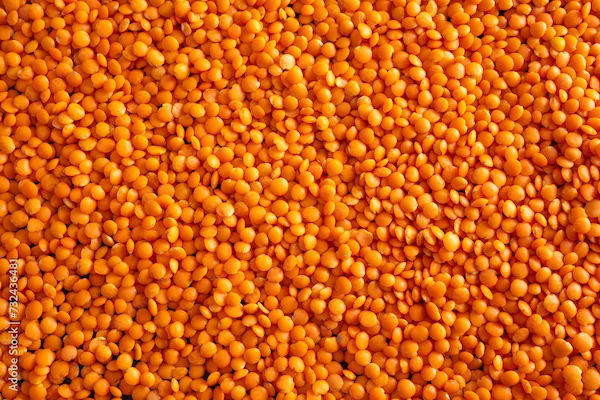Worst Foods To Avoid For Rheumatoid Arthritis
Learn which foods can worsen rheumatoid arthritis symptoms and inflammation. Discover the worst foods to avoid to help manage joint pain and support your overall health naturally.

Written by
Last updated on 21st Jul, 2025

Introduction
Rheumatoid arthritis (RA) is a chronic autoimmune disease that causes joint pain, swelling, and stiffness. While medications and physical therapy play a crucial role in managing RA, your diet can also significantly impact your symptoms. Certain foods can trigger inflammation, worsening joint pain and discomfort. By avoiding these foods, you may experience fewer flare-ups and better overall health.
Here’s a guide to the worst foods for rheumatoid arthritis and healthier alternatives to consider.
1. Processed and Fried Foods
Foods like packaged snacks, frozen meals, and fast food often contain unhealthy fats, preservatives, and refined sugars that increase inflammation.
Why Avoid?
High in trans fats and omega-6 fatty acids, which promote inflammation.
Contain additives that may trigger immune responses.
Healthier Alternatives:
Opt for fresh, whole foods like fruits, vegetables, and nuts.
Cook at home using olive oil or avocado oil instead of deep-frying.
2. Sugary Foods and Beverages
Sodas, candies, pastries, and even some fruit juices are loaded with sugar, which can worsen RA symptoms.
Why Avoid?
Excess sugar increases inflammatory proteins (cytokines) in the body.
Can lead to weight gain, putting extra stress on joints.
Healthier Alternatives:
Choose natural sweeteners like honey or stevia in moderation.
Drink herbal teas or infused water instead of sugary drinks.
3. Refined Carbohydrates
White bread, white rice, pasta, and pastries made from refined flour can spike blood sugar and inflammation.
Why Avoid?
Rapidly digested, leading to blood sugar spikes and increased inflammation.
Lack of fibre and nutrients that help reduce inflammation.
Healthier Alternatives:
Switch to whole grains like quinoa, brown rice, and whole-wheat bread.
Include fibre-rich foods like oats and legumes.
Consult Top Dietitians
4. Red and Processed Meats
Bacon, sausages, hot dogs, and fatty cuts of beef contain high levels of saturated fats and advanced glycation end products (AGEs), which can trigger inflammation.
Why Avoid?
Saturated fats increase inflammation markers in the body.
Processed meats contain preservatives that may worsen RA symptoms.
Healthier Alternatives:
Choose lean proteins like chicken, turkey, or fish (especially fatty fish like salmon, rich in omega-3s).
Try plant-based proteins such as lentils, beans, and tofu.
5. Dairy Products (For Some People)
While dairy is a good source of calcium, some people with RA may find that it worsens their symptoms.
Why Avoid?
Certain proteins in dairy (casein and whey) may trigger inflammation in sensitive individuals.
Full-fat dairy contains saturated fats that can contribute to inflammation.
Healthier Alternatives:
Try almond milk, soy milk, or coconut yoghurt.
If you tolerate dairy, opt for low-fat or fermented options like yoghurt and kefir.
6. Alcohol
Excessive alcohol consumption can interfere with medications and increase inflammation.
Why Avoid?
Alcohol may interact with RA medications, reducing their effectiveness.
Can increase liver stress and inflammation.
Healthier Alternatives:
If you drink, limit intake to occasional small amounts.
Choose anti-inflammatory drinks like green tea or turmeric milk.
7. Gluten (For Some People)
Gluten, found in wheat, barley, and rye, may trigger inflammation in some RA patients, especially those with gluten sensitivity.
Why Avoid?
Gluten can cause gut inflammation, which may worsen autoimmune responses.
Healthier Alternatives:
Try gluten-free grains like quinoa, buckwheat, and millet.
If you suspect gluten sensitivity, consult a doctor for testing.
8. Excessive Salt
High-sodium foods like processed snacks, canned soups, and fast food can contribute to inflammation.
Why Avoid?
Excess salt may increase inflammation and fluid retention, worsening joint swelling.
Healthier Alternatives:
Use herbs and spices (turmeric, ginger, garlic) for flavour instead of salt.
Choose low-sodium or homemade versions of soups and sauces.
Tips for Managing RA Through Diet
1. Eat Anti-Inflammatory Foods:
Fatty fish (salmon, mackerel)
Berries, leafy greens, and nuts
Turmeric, ginger, and olive oil
2. Stay Hydrated: Drink plenty of water to help flush out toxins.
3. Maintain a Healthy Weight: Excess weight puts extra strain on joints.
4. Keep a Food Diary: Track what you eat to identify potential triggers.
5. Consult a Nutritionist: A professional can help tailor a diet plan for your needs.
When to Seek Medical Help?
If your RA symptoms worsen despite dietary changes, consult a rheumatologist. You can book a consultation or schedule tests through Apollo24|7 for expert guidance.
Conclusion
While there’s no one-size-fits-all diet for RA, avoiding inflammatory foods can help manage symptoms. Focus on whole, nutrient-rich foods and listen to your body’s responses. Small dietary changes can make a big difference in your joint health and overall well-being.
Would you like personalised advice? Connect with a specialist today for a tailored RA management plan!
Consult Top Dietitians
Consult Top Dietitians

Ms. Priyanka Saini
Dietician
9 Years • Msc (Food & Nutrition),NDEP
Ghaziabad
Dr. PRIYANKA SAINI'S CLINIC, Ghaziabad

Ms. Soma Saha
clinical nutrition
17 Years • B.Sc. - Home Science (Food & Nutrition), M.Sc. - Home Science (Food & Nutrition)
Kolkata
Dr Utsa Basu Clinic, Kolkata
(25+ Patients)

Ms Silky Mahajan
Dietician
16 Years • B.Sc. - Home Science (Food & Nutrition), M.Sc. - Home Science (Food & Nutrition)
Bengaluru
Foods and Nutrition Clinic, JP Nagar, Bengaluru

Dt Silky Mahajan
Dietician
16 Years • B.Sc. - Home Science (Food & Nutrition), M.Sc. - Home Science (Food & Nutrition)
Bengaluru
Foods and Nutrition Clinic, Koramangala, Bengaluru
(175+ Patients)

Dt Silky Mahajan
Dietician
16 Years • B.Sc. - Home Science (Food & Nutrition), M.Sc. - Home Science (Food & Nutrition)
Bengaluru
Foods and Nutrition Clinic, Whitefield, Bengaluru
Consult Top Dietitians

Ms. Priyanka Saini
Dietician
9 Years • Msc (Food & Nutrition),NDEP
Ghaziabad
Dr. PRIYANKA SAINI'S CLINIC, Ghaziabad

Ms. Soma Saha
clinical nutrition
17 Years • B.Sc. - Home Science (Food & Nutrition), M.Sc. - Home Science (Food & Nutrition)
Kolkata
Dr Utsa Basu Clinic, Kolkata
(25+ Patients)

Ms Silky Mahajan
Dietician
16 Years • B.Sc. - Home Science (Food & Nutrition), M.Sc. - Home Science (Food & Nutrition)
Bengaluru
Foods and Nutrition Clinic, JP Nagar, Bengaluru

Dt Silky Mahajan
Dietician
16 Years • B.Sc. - Home Science (Food & Nutrition), M.Sc. - Home Science (Food & Nutrition)
Bengaluru
Foods and Nutrition Clinic, Koramangala, Bengaluru
(175+ Patients)

Dt Silky Mahajan
Dietician
16 Years • B.Sc. - Home Science (Food & Nutrition), M.Sc. - Home Science (Food & Nutrition)
Bengaluru
Foods and Nutrition Clinic, Whitefield, Bengaluru



